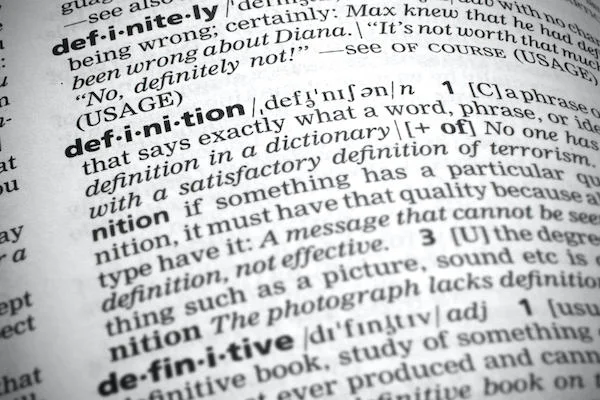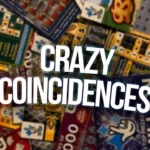Dentiloquent is one of those rare, almost archaic vocabulary pieces that catches the eye — partly because you rarely see it in everyday speech. Yet it appears in some word-lists, obscure dictionaries, and wordplay forums. In this article we’ll dig deep into what “dentiloquent” means, how it might be used, its origins, and whether it has any place in modern English usage.
Definition & Meaning of Dentiloquent
At its core, dentiloquent is often defined as “speaking through the teeth” or “speaking with the teeth.”
- The Collins Dictionary’s New Word Proposal lists “Dentiloquent” as a new word suggestion meaning “talking through one’s teeth.”
- The “Tweetionary” etymology blog gives: “Speaking through clenched teeth. Latin ‘denti’ < ‘dens’ = tooth + ‘loqui’ = to speak.”
- The pronunciation site HowToPronounce defines it simply: “means talks with one teeth.”
In usage guides or English exam forums, “dentiloquent” is sometimes offered as a one-word substitute meaning speech that emphasizes or involves the teeth — perhaps in a muffled, constrained, or forced articulation.
So, dentiloquent may be best understood as:
Dentiloquent (adj.): articulating speech in a way that the teeth are heavily involved — e.g. through clenched teeth, or speech constrained by the teeth.
Because it’s so rare and unusual, you’ll rarely find it in standard dictionaries, and its usage tends to be more playful or in word-enthusiast circles than in formal writing.
Etymology & Linguistic Roots
Understanding where dentiloquent comes from helps clarify its meaning and legitimacy as a word.
- The root “dent- / denti-” comes from the Latin “dens, dentis” meaning tooth.
- The suffix “-loquent” (from Latin loqui) means to speak, talk. So dentiloquent is built from tooth + speak — literally, “speak with the teeth.”
- There is evidence in wordplay forums that the term “dentiloquist” has been used historically (i.e. one who speaks through the teeth) and that spelling variants or shifts happen (e.g. dentriloquist or dentiloquent) in word-game contexts.
Because it doesn’t have a long, documented history in canonical dictionaries, dentiloquent is more in the class of neologism, nonce word, or obscure vocabulary. Its occasional appearance in “word of the day” lists or vocabulary challenge sites suggests it is upheld more for curiosity and novelty than practical usage.
Pronunciation, Variants & Usage Notes
Because dentiloquent is rare, pronunciation and variant spellings deserve attention.
Pronunciation
- As per HowToPronounce, dentiloquent is pronounced approximately as /den-TIL-oh-kwent/ — emphasizing the second syllable “til” or “ti-loq.”
- The stress pattern seems to mirror many -loquent / -loquence words (e.g. eloquent, magniloquent), with stress on the penultimate or antepenultimate syllable.
Variant Spellings & Related Forms
- Sometimes, in word forums, people use dentiloquist (a noun form) to refer to someone who speaks through the teeth.
- Occasional misspellings or conflations include dentriloquist, likely influenced by ventriloquist. Forums debate whether that is correct or erroneous.
- Because the word is not formally established, its forms are not standardized; you may find inconsistent usage across sources.
Usage Notes
- Because the meaning is so specific and the word so rare, using dentiloquent in formal writing may confuse readers. Better to reserve it for playful, descriptive, or poetic contexts.
- If used, provide context or clarification (e.g. “He spoke in a dentiloquent whisper, teeth clenched against the words”).
- It is more likely to appear among word lovers, in cryptic crosswords, or as a stylistic flourish than in mainstream prose.
Examples, Metaphors & Creative Uses
Though actual real-world use of dentiloquent is minimal, we can explore hypothetical or metaphorical examples to show how it could function in writing.
- Descriptive / Poetic Use:
“She hissed a dentiloquent rebuke, the corners of her lips barely moving but her teeth forming the shape of each syllable.” - Dialogue / Character Voice:
“He spoke in that dentiloquent tone again, his jaw rigid — you could taste the tension in each word.” - Wordplay / Vocabulary Challenges:
In a vocabulary list or “word of the day,” someone might define dentiloquent and ask readers to use it in a sentence. - Comparisons / Contrast:
“Unlike a mellifluous speaker, who speaks sweetly, a dentiloquent speaker forces each word between clenched teeth.”
The brilliance of such rare words lies in their evocativeness. When readers encounter dentiloquent, they may pause, imagine the sound, and experience that moment of linguistic curiosity.
Challenges, Criticism & Why It Remains Obscure
With obscure words, there are always hurdles to adoption. Here are some key challenges for dentiloquent.
1. Lack of Standard Dictionary Recognition
- Many major dictionaries (Merriam-Webster, Oxford) do not list dentiloquent. That means it lacks formal authority, which discourages adoption in academic or professional writing.
- Because its presence is often limited to “word suggestion” lists (e.g. Collins New Word Proposal) and niche sites, it remains on the fringe.
2. Limited Use Context
- The scenario “speaking through the teeth” is quite rare in everyday language. Most speakers do not physically speak through the teeth (unless figuratively or in extreme stress).
- Its specificity means that widespread use would require unusual descriptive need — it doesn’t fill a frequent lexical gap.
3. Potential Confusion & Misinterpretation
- Because it is so rare, many readers will not recognize it, misread it, or confuse it with ventriloquent / ventriloquist.
- The similarity to ventriloquist (which means speaking without moving lips, projecting from the belly) may cause misassociation or confusion.
- Without widely accepted usage examples, writers may hesitate to use it for fear of objections or misinterpretation.
4. Competing Expressions
- More common phrases already exist: through clenched teeth, muffled, gritted speech, teeth-grinding words, etc.
- Because strong alternatives exist, dentiloquent may rarely be necessary.
Thus, while dentiloquent is intellectually interesting, these challenges keep it in the domain of obscure—or novelty—vocabulary rather than in regular use.
Relevance, Teaching & Future of Dentiloquent
Though rare, dentiloquent can still serve interesting purposes. Here’s where it might matter going forward.
1. Enriching Vocabulary & Wordplay
- Word lovers, Scrabble players, logophiles enjoy rare words. Dentiloquent may appear in lists of unusual words or vocabulary-building materials.
- It makes for a good teaching example: combining Latin roots denti- + -loquent to show how English forms descriptive adjectives.
2. Stylistic & Literary Use
- In poetry, fiction, or stylized prose, a moment of tension, anger, or suppressed speech might be elegantly captured by dentiloquent.
- Because rare words demand attention, using dentiloquent may create a dramatic pause or effect in a sentence.
3. Teaching Etymology & Morphology
- Educators teaching morphology or root analysis can use dentiloquent as an example of how roots and suffixes combine (tooth + speech).
- It demonstrates how new or archaic words can be invented (neologisms) following productive morphological patterns.
4. Potential for Broader Recognition
- If a respected author or poet uses the word in a widely circulated work, dentiloquent may gain more recognition and enter more dictionaries.
- With the internet and niche blogs, unusual words sometimes resurface and gain cult usage; dentilo quent might be among those.
5. Digital Lexicons & Word Databases
- Some online dictionaries (especially user-submitted ones) may eventually adopt dentiloquent as an “interesting but rare” entry.
- Because the Collins New Word Proposal page monitors it, it might someday move from proposal to official inclusion if usage evidence grows.
Conclusion
Dentiloquent is one of those enchanting, obscure words that invites curiosity. Though not found in most standard dictionaries, it appears in wordplay forums and neologism proposals with the meaning “speaking through the teeth” — a combination of Latin denti- (tooth) + loquent (speaking).
Because of its rarity, dentiloquent functions best as a stylistic flourish or in vocabulary explorations rather than as a staple of everyday speech. It carries charm for its specificity and the vividness it brings to description.








